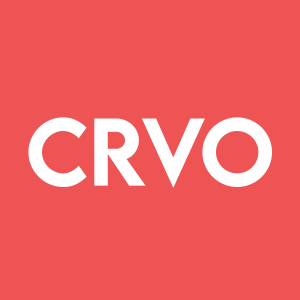CervoMed Announces Key Takeaways from Oral Presentations at the 17th Clinical Trials on Alzheimer's Disease Conference (CTAD)
Rhea-AI Summary
CervoMed presented key findings at the CTAD Conference regarding neflamapimod's potential in treating dementia with Lewy bodies (DLB). The presentations highlighted significant reduction in plasma GFAP levels (p=0.015 vs placebo) in Phase 2a trials, indicating reduced neurodegenerative disease activity. The ongoing RewinD-LB Phase 2b study successfully enrolled DLB patients without tau pathology, optimizing the potential treatment effect. The study's sample size of 80 patients per arm provides nearly 100% statistical power for meeting its primary endpoint. Topline results are expected in December.
Positive
- Significant reduction in plasma GFAP levels (p=0.015 vs placebo) associated with clinical improvements
- Phase 2b study's statistical power approaching 100% for primary endpoint
- Successfully enrolled optimal patient population without tau pathology
- Large addressable market of 1.4M patients in US and EU
Negative
- No approved treatments currently exist for DLB
- Results are still pending and success is not guaranteed
News Market Reaction – CRVO
On the day this news was published, CRVO declined 2.65%, reflecting a moderate negative market reaction.
Data tracked by StockTitan Argus on the day of publication.
Data from the AscenD-LB Phase 2a trial in DLB confirm recent scientific literature indicating that plasma glial fibrillary acid protein (GFAP) is a robust measure of neurodegenerative disease activity in DLB
Neflamapimod treatment previously led to significant reduction in plasma GFAP levels (p=0.015 versus placebo) and these reductions were associated with an improvement in clinical outcomes
The RewinD-LB Phase 2b clinical study successfully enrolled a DLB patient population that is optimized to show the treatment effect of neflamapimod when topline data are reported in December
BOSTON, Nov. 04, 2024 (GLOBE NEWSWIRE) -- CervoMed Inc. (NASDAQ: CRVO), a clinical-stage company focused on developing treatments for age-related neurologic disorders, today announced key takeaways from two oral presentations characterizing the potential of neflamapimod as a treatment for patients with dementia with Lewy bodies (DLB) that were presented at the Clinical Trials on Alzheimer’s Disease Conference (CTAD) on November 1, 2024.
“DLB is a rapidly debilitating condition affecting over 1.4 million patients in the U.S. and EU that has no approved treatment,” said John Alam, MD, Chief Executive Officer of CervoMed. “As we approach the December topline results for our innovative proof-of-concept RewinD-LB Phase 2b clinical trial of neflamapimod, we are excited to share additional results on the effect of neflamapimod treatment on an important biomarker of DLB neurodegenerative disease activity, as well as the baseline characteristics of the patients enrolled into the Phase 2b study. Taken together, we believe the findings further increase the probability of success of the clinical trial”
Dr. Alam continued, “For both Alzheimer’s disease and DLB, the utilization of imaging and blood testing to exclude patients with high levels of tau pathology has emerged as a powerful tool to focus clinical trials on patients who have the least amounts of fixed, irreversible neurodegeneration, thereby increasing the magnitude of the clinical effect and probability of success. In the first presentation, through demonstrating significant beneficial effects on a robust blood biomarker of DLB disease activity and correlating that effect to the clinical outcome and underlying pathology, we show that neflamapimod in our Phase 2a clinical study reduced neurodegenerative disease activity in the basal forebrain cholinergic system and its clinical activity is mediated by that effect. In the second presentation we show that the clinical profile of the patients enrolled into RewinD-LB has substantial clinical disease burden and is similar to that in the patients without biomarker evidence of tau pathology group in the Phase 2a study, the group that showed the highest magnitude treatment response. We believe successfully enrolling a DLB patient population that has substantial clinical disease burden, while not have biomarker evidence of tau pathology, and with it a higher expected magnitude treatment effect than if the study had enrolled patients without screening for level of tau pathology, further increases our confidence in the outcome of the RewinD-LB trial.”
The presentations are accessible on the “Presentations and Publications” section of the CervoMed website.
- Title: Plasma biomarker data indicates clinical activity of neflamapimod in dementia with Lewy bodies (DLB) is mediated through effects on the basal forebrain cholinergic system
- Authors: John Alam, Charlotte Teunissen; CervoMed Inc
- Title: Participants enrolled in the RewinD-LB clinical trial: a large cohort of patients with dementia with Lewy bodies (DLB) without tau-related temporal lobe neurodegeneration, as defined by absence of elevation in plasma ptau181
- Authors: Stephen Gomperts (Mass General, US), John-Paul Taylor (Newcastle University, UK), Paul Maruff (Cosgate Ltd, UK), Amanda Gardner (Cervomed), Kelly Blackburn (Cervomed), John Alam (Cervomed), James Galvin (Univ of Miami, US)
Key takeaways from the presentations:
We have demonstrated a treatment effect on a robust biomarker of neurogenerative disease activity in DLB. Plasma GFAP is highly correlated to cognitive decline as well as to neuronal and neurofibrillary tangles, a pathologic measure of neurodegenerative disease activity. Plasma GFAP is also the first biomarker that is elevated in the evolution of DLB, which combined with the treatment effect of cholinergic directed therapy such as neflamapimod, indicates that elevated plasma GFAP in DLB patients that do not have biomarker evidence of tau pathology reflects neurodegenerative disease activity in the basal forebrain cholinergic system. Accordingly, the treatment effect of neflamapimod on plasma GFAP in DLB patient with low tau pathology in the Phase 2a clinical study demonstrates that neflamapimod reduces neurodegenerative disease activity in the basal forebrain cholinergic system and its clinical activity is mediated by that effect.
We are targeting a patient population that is most likely to respond to neflamapimod in the RewinD-LB trial. Compared to Early AD patients, DLB patients without tau pathology are afflicted by higher clinical disease burden, as measured by the Clinical Dementia Rating Sum of Boxes (CDR-SB), due to having disease in the basal forebrain cholinergic system. Combined with the Phase 2a data demonstrating the high level of treatment effect in these patients, DLB patients who do not have biomarker evidence of tau pathology represent an ideal patient population for evaluating a cholinergic-directed therapy such as neflamapimod.
By exclusively enrolling patients without biomarker evidence of tau pathology the sample size of RewinD-LB provides high statistical power to detect a statistically significant and clinically meaningful difference between neflamapimod and placebo. The sample size for RewinD-LB of 80 per patients per arm was originally chosen to have sufficient statistical power to detect the expected treatment effect in a population including patients both with and without biomarker evidence of tau pathology. By including only patients without biomarker evidence of tau pathology, while maintaining the original sample size, the study has greater than
About CervoMed
CervoMed Inc. (the “Company”) is a clinical-stage company focused on developing treatments for age-related neurologic disorders. The Company is currently developing neflamapimod, an investigational, orally administered small molecule brain penetrant that inhibits p38 mitogen-activated protein kinase alpha. Neflamapimod has the potential to treat synaptic dysfunction, the reversible aspect of the underlying neurodegenerative processes that causes disease in DLB and certain other major neurological disorders. Neflamapimod is currently being evaluated in a Phase 2b study in patients with early-stage DLB.
Forward-Looking Statements
This press release includes express and implied forward-looking statements within the meaning of the Private Securities Litigation Reform Act of 1995, as amended, regarding the intentions, plans, beliefs, expectations or forecasts for the future of the Company, including, but not limited to, the therapeutic potential of neflamapimod and the anticipated timing and achievement of clinical and development milestones, including the completion and achievement of primary endpoints of the RewinD-LB Phase 2b clinical trial and the Company’s announcement of topline and other data therefrom, and any other expected or implied benefits or results, including that any initial clinical results observed with respect to neflamapimod in the AscenD-LB Trial or RewinD-LB Trial will be replicated in later trials. Terms such as “believes,” “estimates,” “anticipates,” “expects,” “plans,” “aims,” “seeks,” “intends,” “may,” “might,” “could,” “might,” “will,” “should,” “approximately,” “potential,” “target,” “project,” “contemplate,” “predict,” “forecast,” “continue,” or other words that convey uncertainty of future events or outcomes (including the negative of these terms) may identify these forward-looking statements. Although there is believed to be reasonable basis for each forward-looking statement contained herein, forward-looking statements by their nature involve risks and uncertainties, known and unknown, many of which are beyond the Company’s control and, as a result, actual results could differ materially from those expressed or implied in any forward-looking statement. Particular risks and uncertainties include, among other things, those related to: the Company’s available cash resources and the availability of additional funds on acceptable terms; the results of the Company’s clinical trials, including RewinD-LB; the likelihood and timing of any regulatory approval of neflamapimod or the nature of any feedback the Company may receive from the U.S. Food and Drug Administration; the ability to implement business plans, forecasts, and other expectations in the future; general economic, political, business, industry, and market conditions, inflationary pressures, and geopolitical conflicts; and the other factors discussed under the heading “Risk Factors” in the Company’s Annual Report on Form 10-K for the year ended December 31, 2023 filed with the U.S. Securities and Exchange Commission (SEC) on March 29, 2024, and other filings that the Company may file from time to time with the SEC. Any forward-looking statements in this press release speak only as of the date hereof (or such earlier date as may be identified). The Company does not undertake any obligation to update such forward-looking statements to reflect events or circumstances after the date of this press release, except to the extent required by law.
Investor Contact:
PJ Kelleher
LifeSci Advisors
617-430-7579








